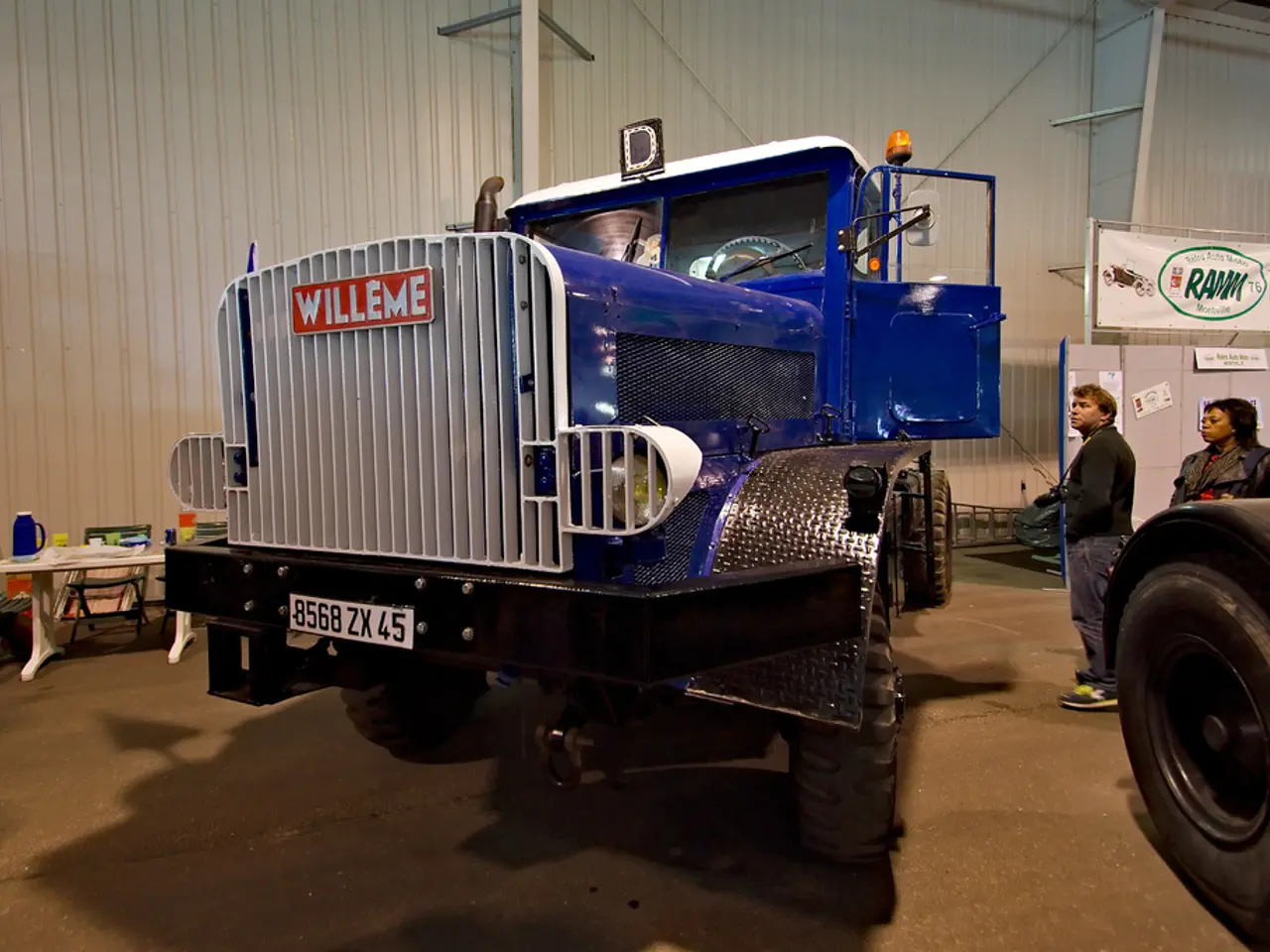Toyota employs VDL Groep hydrogen-fueled semi-trucks for European component delivery operations
Toyota is making strides in the realm of sustainable transportation, with its hydrogen fuel cell trucks now a common sight on logistics routes across Europe. The trucks, driven by a vibration-free electric motor, are reducing noise and disturbance to communities while improving driver comfort.
The trucks, which can travel 400km on one tank of hydrogen under real-world driving conditions, are being used by Toyota on routes between Diest, Lille (France), Cologne (Germany), Rotterdam, and Weesp (Netherlands). Toyota is using these trucks to move parts from its European parts centre in Diest, Belgium.
The success of these hydrogen fuel cell trucks has led Toyota to add four more to its fleet, following trials with a demonstration truck built by VDL Groep. This collaboration focuses on increasing understanding of the use of hydrogen trucks on public roads, which will be crucial for the ecological energy transition in Europe.
VDL Groep delivered the first hydrogen fuel cell truck to Toyota in February, following an agreement signed in 2023. Hans Bekkers, director of business development at VDL Special Vehicles, stated that the collaboration with Toyota's fuel cell technology represents one such alternative solution for an emission-free future.
Toyota is not alone in its pursuit of a greener future. The company is currently collaborating with BMW to develop the next generation of hydrogen fuel cell systems for passenger cars and commercial vehicles. This partnership aims to create more compact, efficient, and powerful fuel cell technology, with the goal of production and market launch of BMW's first series hydrogen vehicle by 2028.
The collaboration between Toyota and BMW has entered a new stage in the development of next-generation fuel cell systems. The joint development aims to accelerate efforts towards a future where hydrogen energy supports society.
As part of this collaboration, Toyota and BMW are also working together on expanding hydrogen infrastructure. Hydrogen refueling stations will be installed along the routes travelled by the trucks, making it easier for more companies to adopt hydrogen fuel cell technology.
Toyota's logistics providers Ceva Logistics, Groupe Cat, Vos Transport, and Yusen Logistics are also using these hydrogen fuel cell trucks. The centre from which these trucks operate, Toyota Parts Centre Europe, processes more than 500,000 parts a day.
Toyota aims to reach carbon neutrality in its logistics operations by 2040 and contribute to growing the hydrogen economy. The delivery trucks, which deliver similar performance to diesel trucks but have zero tailpipe emissions, are a significant step towards this goal.
In conclusion, Toyota's hydrogen fuel cell trucks are revolutionising logistics operations in Europe, offering a cleaner, quieter, and more efficient alternative to diesel trucks. The collaboration with BMW and VDL Groep is further strengthening Toyota's position as a leader in sustainable transportation, with the goal of accelerating the transition to a hydrogen-powered future.
Read also:
- Peptide YY (PYY): Exploring its Role in Appetite Suppression, Intestinal Health, and Cognitive Links
- Toddler Health: Rotavirus Signs, Origins, and Potential Complications
- Digestive issues and heart discomfort: Root causes and associated health conditions
- House Infernos: Deadly Hazards Surpassing the Flames








